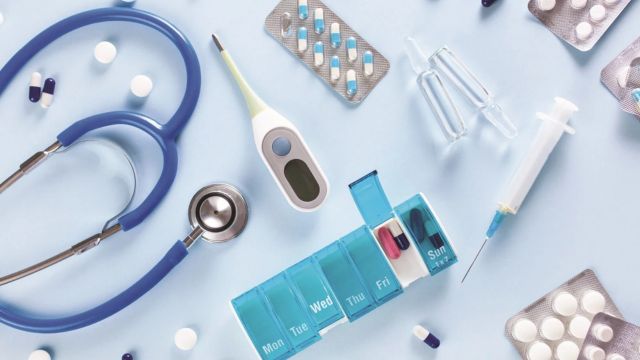Managing a successful clinic calls for more than simply knowledgeable medical staff members. Timely, safe, and effective patient treatment depends on having the correct medical supplies on hand. Maintaining a well-stocked inventory of basic medical supplies is the cornerstone of great healthcare services whether you are opening a new clinic or running an already-existing one.
Why Are Medical Supplies So Important?
The diagnosis, treatment, and patient care all depend on medical supplies in great part. Healthcare workers could find it difficult to maintain safety standards or administer efficient therapy without the correct instruments and supplies. These tools not only keep patients safe but also shield medical professionals from various threats including infections.
Comprehensive List of Essential Medical Supplies for Every Clinic

Below is a detailed list of the most important medical supplies that every clinic should stock to handle a wide variety of medical situations efficiently:
1. Personal Protective Equipment (PPE)
-
Gloves (Nitrile, Latex, or Vinyl): To prevent cross-contamination and protect both patients and healthcare workers during examinations and procedures. Gloves should be changed between patients to maintain hygiene.
-
Surgical Masks and N95 Respirators: Essential for protecting against airborne pathogens, especially important during infectious disease outbreaks like COVID-19.
-
Face Shields and Goggles: Protect the eyes and face from splashes and droplets.
-
Gowns and Aprons: Used during procedures or when caring for infectious patients to protect clothing and skin.
2. Basic Diagnostic Tools
-
Stethoscopes: To listen to heartbeats, lung sounds, and blood flow.
-
Blood Pressure Monitors (Manual and Digital): Blood pressure is a key vital sign monitored regularly in patients.
-
Thermometers (Digital and Infrared): For accurate measurement of body temperature.
-
Pulse Oximeters: Measure oxygen saturation levels, critical for patients with respiratory conditions.
-
Otoscopes and Ophthalmoscopes: Used for ear and eye examinations.
3. Wound Care Supplies
-
Sterile Gauze and Dressings: To cover wounds and prevent infection.
-
Adhesive Bandages: For small cuts and abrasions.
-
Antiseptic Solutions and Wipes: Such as povidone-iodine or alcohol wipes for cleaning wounds.
-
Medical Tape and Scissors: To secure dressings in place.
4. Injection and IV Supplies
-
Syringes and Needles (Various Sizes): For administering injections and drawing blood.
-
Alcohol Swabs: To sanitize injection sites before use.
-
IV Catheters and Tubing: For intravenous fluid and medication administration.
-
Sharps Disposal Containers: To safely dispose of used needles and syringes.
5. Emergency Equipment
-
First Aid Kits: Stocked with basic supplies to handle minor injuries and emergencies.
-
Automated External Defibrillators (AEDs): Critical for resuscitating patients in cardiac arrest.
-
Oxygen Tanks and Masks: For patients experiencing respiratory distress.
-
Suction Devices: To clear airways when necessary.
6. Sterilization and Disinfection Products
-
Autoclave Sterilizers or Chemical Sterilants: To sterilize reusable instruments and equipment.
-
Surface Disinfectants and Hand Sanitizers: To maintain a clean and germ-free clinic environment.
-
Sterile Gloves and Instruments: Ensures infection control during medical procedures.
7. Medical Furniture and Accessories
-
Examination Tables: For patient comfort and ease of examination.
-
Medical Trays and Trolleys: To organize and transport medical instruments efficiently.
-
Waste Disposal Bins (Biohazard and General): For safe disposal of medical and non-medical waste.
Importance of Inventory Management
Having these supplies is not enough; managing their stock effectively is equally important. Running out of critical supplies or using expired products can seriously impact patient care. To maintain a smooth operation:
-
Conduct regular inventory audits.
-
Source supplies from reliable vendors.
-
Keep emergency backups for high-demand items.
-
Monitor expiry dates carefully and replace items on time.
Conclusion
Providing high-quality healthcare and properly handling crises depend on your clinic being filled with basic medical supplies. Effective inventory control and planning help to prevent supply shortages and safeguard patient health and safety as well as provider safety.
Please contact us if you need advice on keeping your inventory or assistance locating premium medical products. An orderly clinic is a healthy clinic!








